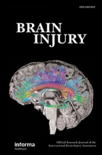
BRAIN INJURY
Scope & Guideline
Advancing understanding of traumatic brain injury.
Introduction
Aims and Scopes
- Trauma and Injury Mechanisms:
Research on the mechanisms of brain injury, including traumatic brain injury (TBI) and sports-related concussions, focusing on causes, consequences, and prevention strategies. - Neurorehabilitation and Recovery:
Studies exploring various rehabilitation methods, including physical, cognitive, and psychological interventions, to enhance recovery and functional outcomes for individuals with brain injuries. - Psychosocial Impact and Quality of Life:
Investigations into the psychosocial effects of brain injuries on patients and their families, including quality of life assessments and community reintegration. - Biomarkers and Neuroimaging:
Research utilizing biomarkers and advanced neuroimaging techniques to understand brain injuries better, predict outcomes, and tailor interventions. - Innovative Treatment Approaches:
Exploration of novel therapeutic interventions, including pharmacological treatments, neurostimulation, and technology-enhanced rehabilitation. - Educational and Policy Perspectives:
Discussion of educational programs, policy implications, and best practices for managing brain injuries in various populations, including children and veterans.
Trending and Emerging
- Telehealth and Remote Rehabilitation:
With the rise of digital health solutions, there is an increasing focus on telehealth interventions for brain injury rehabilitation, particularly in the context of the COVID-19 pandemic. - Mental Health and Emotional Well-being:
Emerging research is increasingly addressing the psychological aspects of brain injuries, including the prevalence of anxiety, depression, and PTSD among survivors. - Longitudinal Studies of Recovery:
There is a trend toward longitudinal studies that track recovery trajectories over time, providing deeper insights into the long-term effects of brain injuries. - Interdisciplinary Approaches:
Collaborative research involving multiple disciplines, including psychology, medicine, and rehabilitation sciences, is gaining traction to address the complex nature of brain injuries. - Biomarkers and Genomics:
A growing interest in identifying biomarkers and genetic factors that influence recovery outcomes and susceptibility to brain injuries is emerging as a significant research avenue. - Health Disparities and Access to Care:
Research examining disparities in access to care and outcomes among different populations, particularly marginalized groups, is increasingly prevalent.
Declining or Waning
- Traditional Neuropsychological Assessments:
Research focused on conventional neuropsychological testing methods is becoming less prevalent, possibly due to a shift towards more dynamic and functional assessments that consider real-world applications. - Acute Management Protocols:
Studies specifically addressing acute management protocols for TBI are decreasing, as the field moves toward integrated, long-term rehabilitation strategies rather than isolated acute interventions. - Single-Factor Analyses:
Research that solely examines single factors affecting TBI outcomes, such as age or sex, is waning in favor of more comprehensive models that consider multiple interacting factors. - Focus on Isolated Case Studies:
The prevalence of isolated case studies is decreasing as the journal emphasizes larger cohort studies and systematic reviews that provide broader insights into TBI and its management.
Similar Journals
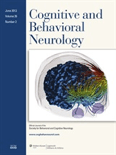
Cognitive and Behavioral Neurology
Fostering Insights at the Nexus of Neurology and BehaviorCognitive and Behavioral Neurology is a prominent peer-reviewed journal dedicated to advancing the understanding of cognitive and behavioral aspects of neurological disorders. Published by Lippincott Williams & Wilkins, this journal has established itself as a vital resource for researchers, clinicians, and students in the fields of cognitive neuroscience, neuropsychology, and psychiatry. With an ISSN of 1543-3633 and an E-ISSN of 1543-3641, it offers a robust platform for the dissemination of high-quality research, as evidenced by its positioning in the Q3 quartiles across various categories, including Cognitive Neuroscience and Psychiatry. The journal, which has been actively publishing since 2003, encourages innovative studies that explore the intersection of cognition and behavior in neurological contexts. As a vital contributor to the academic dialogue on these topics, it provides an essential archive of findings and discussions that inform clinical practice and educational approaches, reflecting its commitment to improving patient outcomes and enhancing neurological science.
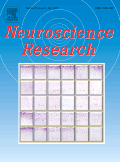
NEUROSCIENCE RESEARCH
Connecting Science and Application in NeuroscienceNEUROSCIENCE RESEARCH, published by Elsevier Ireland Ltd, is a leading journal in the field of neuroscience, with a notable reputation for disseminating high-quality research that spans a variety of topics within the discipline. With an ISSN of 0168-0102 and an E-ISSN of 1872-8111, this journal serves as a vital platform for both established researchers and emerging voices in the field. Ranking in the Q2 quartile in both Medicine and Neuroscience categories, it has been recognized as a reliable source of innovative findings since its inception in 1984, with continuous publication through 2024. Although it does not currently offer Open Access options, the journal is indexed in Scopus, holding a significant position at Rank #48/113 in General Neuroscience, reflecting its contribution to advancing the understanding of neural mechanisms across various contexts. With its address anchored in Ireland, NEUROSCIENCE RESEARCH plays an essential role in bridging scientific inquiry and practical applications, making it an indispensable resource for researchers, professionals, and students dedicated to the burgeoning field of neuroscience.
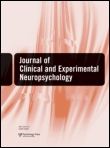
JOURNAL OF CLINICAL AND EXPERIMENTAL NEUROPSYCHOLOGY
Connecting empirical research with clinical application.The Journal of Clinical and Experimental Neuropsychology, published by Taylor & Francis Inc, stands as a pivotal resource in the realms of clinical psychology and neuropsychology. With an ISSN of 1380-3395 and an E-ISSN of 1744-411X, this journal has been a hallmark of scholarly excellence since its inception in 1985, continuing to shape the fields until 2024. It is renowned for its rigorous peer-reviewed articles and has garnered significant recognition, achieving a Q2 ranking in Clinical Psychology and Q3 rankings in various other relevant categories as of 2023. Serving as a bridge between clinical practice and experimental research, the journal underscores the critical role of neuropsychological assessment and intervention in enhancing mental health outcomes. Although not an open-access journal, it provides significant insights and empirical data that are crucial for researchers, clinicians, and students dedicated to advancing the understanding of cognitive functioning and psychological health. The journal's commitment to disseminating high-quality research contributes to its reputation and impact, making it a vital resource for those engaged in the study of neuropsychology and its clinical applications.

Brain and Spine
Fostering interdisciplinary dialogue for groundbreaking neurological discoveries.Brain and Spine is a premier academic journal published by ELSEVIER, dedicated to advancing the fields of neuroscience and neurology. With its unique focus on the complex interactions between brain function and spinal health, this journal serves as an essential resource for researchers, clinicians, and students alike. Though currently lacking an official impact factor, its ranking within Scopus highlights its relevance, placing it in the 25th percentile for neuroscience (miscellaneous) and the 23rd percentile within neurology, indicating that while it is a developing journal, it holds potential for significant contributions to the field. Operating under open-access principles, it aims to disseminate valuable findings widely, ensuring that novel insights into neurological health are accessible to a global audience. Brain and Spine seeks to foster interdisciplinary collaboration and innovation, making it an invaluable platform for those striving to enhance our understanding of the brain and spinal cord's intricate functions and interdependencies.

Translational Neuroscience
Advancing Neuroscience Through Multidisciplinary Collaboration.Translational Neuroscience, published by DE GRUYTER POLAND SP Z O O, is a leading open-access journal since its inception in 2015, dedicated to the multidisciplinary exploration of neurological research and its clinical applications. With an ISSN of 2081-3856 and an E-ISSN of 2081-6936, the journal serves as a crucial platform for scholars and practitioners to disseminate innovative findings and theoretical advancements in the field of neuroscience. Covering various aspects of general neuroscience, it is ranked in the Q3 quartile for 2023 and positioned at Rank #75 out of 113 in its category, reflecting its growing impact within the scientific community. The journal strives to bridge the gap between laboratory research and clinical practice, fostering collaboration among researchers, clinicians, and educators. The editorial team is committed to maintaining high publication standards that engage the audience with rigorous research while promoting a culture of open science. For those interested in the forefront of neuroscience research, Translational Neuroscience offers an invaluable resource for knowledge and innovation.

Aging Brain
Exploring Neurobiology for a Healthier TomorrowAging Brain is a premier Open Access journal published by Elsevier, dedicated to advancing the understanding of the neurobiological changes associated with aging. Since its commencement in 2021, this journal has been pivotal in disseminating high-quality research that explores the intricate relationships between aging and cognitive functions, neurological disorders, and overall brain health. With a notable commitment to open accessibility, Aging Brain ensures that vital findings are available to a global audience, fostering collaboration and innovation in the field. Researchers, healthcare professionals, and students alike will find a rich repository of cutting-edge studies, reviews, and insights aimed at addressing the complexities of the aging brain. The journal stands as an influential platform for those passionate about enhancing the quality of life for the aging population, making it a valuable resource in gerontology and neuroscience.
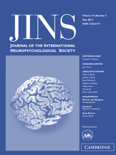
JOURNAL OF THE INTERNATIONAL NEUROPSYCHOLOGICAL SOCIETY
Unveiling the Complexities of Cognitive FunctionJOURNAL OF THE INTERNATIONAL NEUROPSYCHOLOGICAL SOCIETY, published by Cambridge University Press, stands as a premier outlet for advancing the understanding of neuropsychology and its clinical applications. With a solid impact reflected in its Q1 categorizations in both Clinical Psychology and Neurology, alongside impressive Scopus rankings, this journal plays a critical role in disseminating cutting-edge research from 1995 to the present. It caters to a diverse academic community, including researchers, clinicians, and students, by providing a comprehensive platform for original research, reviews, and insightful commentaries that explore the intersection of neurological disorders and cognitive functions. Although not currently offered as an Open Access journal, its rigorous peer-review process ensures the highest standards of scholarly excellence. Engaging with the JOURNAL OF THE INTERNATIONAL NEUROPSYCHOLOGICAL SOCIETY means staying at the forefront of neuropsychological science and clinical practice.

NeuroSci
Exploring the Depths of the Nervous System, TogetherNeuroSci is an esteemed open-access journal published by MDPI, dedicated to advancing the field of neuroscience through high-quality research dissemination. Operating under the E-ISSN 2673-4087, this journal aims to foster collaboration and innovation by providing a platform for original research articles, reviews, and theoretical studies that address the complexities of the brain and nervous system. NeuroSci encourages submissions from a wide array of disciplines including cognitive neuroscience, neurobiology, neurophysiology, and neuropsychology, making it an essential resource for researchers, professionals, and students alike. With its commitment to open accessibility, NeuroSci ensures that groundbreaking findings are readily available to the global community, thereby enhancing the impact and exchange of knowledge in neuroscience. The journal is located at ST ALBAN-ANLAGE 66, CH-4052 BASEL, SWITZERLAND, contributing to the reputation of MDPI as a leading publisher in the academic landscape.

Turkish Neurosurgery
Shaping the Landscape of Neurosurgery Through ResearchTurkish Neurosurgery is a distinguished journal published by the TURKISH NEUROSURGICAL SOC, dedicated to advancing the field of neurosurgery and clinical neurology. With an ISSN of 1019-5149 and converging its focus from 1990 to 2024, this regional journal aims to bridge the gap in knowledge dissemination within Turkey and beyond. It holds a notable position in the academic community, categorized in the Q3 quartile for both Neurology (clinical) and Surgery in 2023, illustrating its relevance in these critical fields. Although currently not an open-access publication, it offers insights and research findings that are vital for researchers, practitioners, and students who seek to stay abreast of developments in neurosurgical practices. Located in Ankara, Turkiye, Turkish Neurosurgery provides a platform for sharing rigorous research that enhances clinical outcomes and informs surgical techniques, thus playing a crucial role in elevating the standards of neurosurgery in the region.
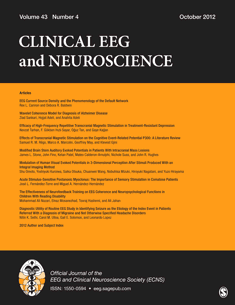
CLINICAL EEG AND NEUROSCIENCE
Pioneering Research in ElectroencephalographyCLINICAL EEG AND NEUROSCIENCE, published by SAGE Publications Inc, stands as a pivotal journal in the fields of neurology and neuroscience, with a focus on the latest research and advancements in clinical electroencephalography and neurophysiology. Since its inception in 1970, the journal has provided a platform for rigorous scholarly work, offering valuable insights into neurological disorders and EEG technology. With its current categorization in the Q2 and Q3 quartiles across various subfields of medicine and neurology, it ranks prominently in the Scopus database, emphasizing its significance in academic discourse. The journal's commitment to disseminating high-quality research is underscored by its open access options, facilitating broader accessibility to its published findings. For researchers, clinicians, and students alike, CLINICAL EEG AND NEUROSCIENCE remains an essential resource for keeping abreast of the evolving landscape of neurological studies.